Interview: Graham Phillips Revels in SUNDAYs IN THE PARK WITH Sondheim
Sunday in the Park with George has just opened at the Pasadena Playhouse as part of their six-month celebration of everything Sondheim
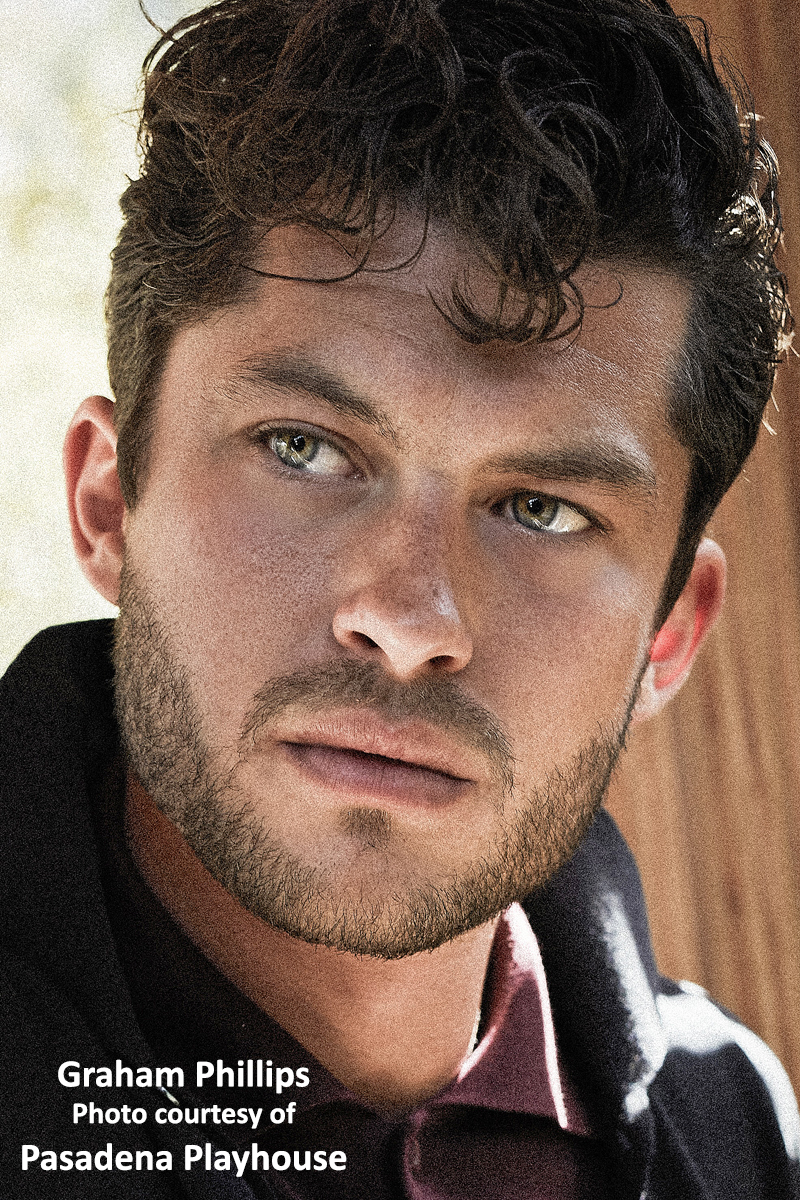
Stephen Sondheim and James Lapine's 1985 Pulitzer Prize winning Sunday in the Park with George has just opened at The Pasadena Playhouse as part of their six-month celebration of everything Sondheim. Sarna Lapine (James' niece) directs the cast of twenty-two, lead by Graham Phillips as George Seurat/George and Krystina Alabado as Dot/Marie. Andy Einhorn conducts a full orchestra of sixteen musicians. After a howling boot camp of rehearsals and a very successful opening night, Graham finally took a breather to answer a few of my queries.
Thank you for taking the time for this interview, Graham!
What first attracted you to be a part of this Pulitzer Prize winning show of Stephen Sondheim and James Lapine?
To be honest I hadn't considered the role as a possibility for me. I've always erroneously had this idea of Seurat as being older, but the fact that he was only 27 when he unveiled the painting on which the show is based obliterated that illusion pretty quickly. When I got the audition, I'd never seen a production of the show in its entirety, though I'd caught pieces of Mandy and Bernadette's iconic recording, and by the time I auditioned, I'd only had time to read the first act.
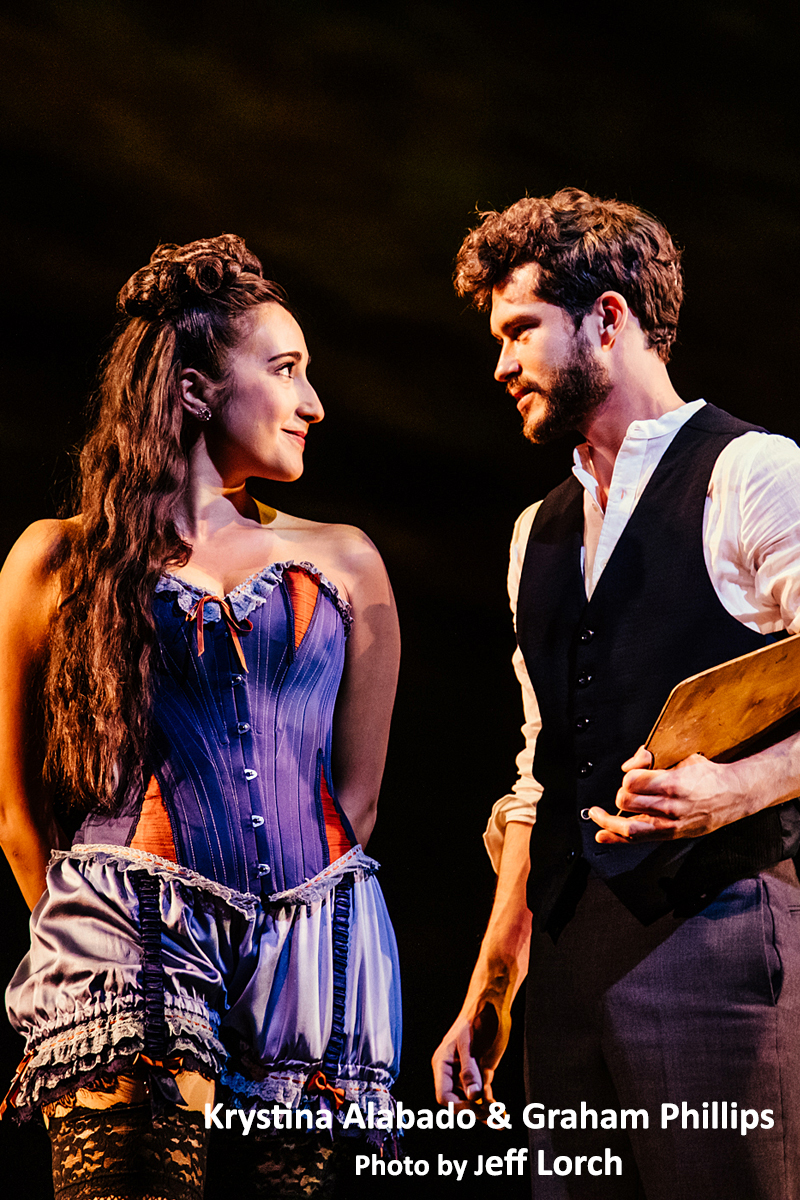 What I have found most compelling about the role is George's clarity of desire -his singular compulsion to give himself entirely to the creation of something new that reveals an intimate part of himself despite that sacrificing the possibility of a more reciprocal intimacy and involvement with the world. It is not that he does not care what people think or does not desire meaningful connections; he just cannot bring himself to change for other's benefit, particularly if it challenges or complicates the pursuit of his primary goal. The intensity of this compulsion and dedication makes me feel that George may have a premonition that he will die young, or perhaps is already sick, and in knowing that he doesn't have much time, must sacrifice much of what makes life worth living in order to make his mark on the world while he can. I feel it is only from this premonition that George is able to make the excruciating decision to let a part of himself die in letting go of Dot and his daughter, and from it, let something else grow.
What I have found most compelling about the role is George's clarity of desire -his singular compulsion to give himself entirely to the creation of something new that reveals an intimate part of himself despite that sacrificing the possibility of a more reciprocal intimacy and involvement with the world. It is not that he does not care what people think or does not desire meaningful connections; he just cannot bring himself to change for other's benefit, particularly if it challenges or complicates the pursuit of his primary goal. The intensity of this compulsion and dedication makes me feel that George may have a premonition that he will die young, or perhaps is already sick, and in knowing that he doesn't have much time, must sacrifice much of what makes life worth living in order to make his mark on the world while he can. I feel it is only from this premonition that George is able to make the excruciating decision to let a part of himself die in letting go of Dot and his daughter, and from it, let something else grow.
The more time I spend in this process, the more apparent it becomes that the show and painting both seem to be pointing to what it means to place yourself in the broader procession of humanity: To find a way to hold both the preciousness of the singularity of your existence, and also the implicit spiritual connection to the whole. And of course, the irony in how isolating the life of an artist can become in pursuit of capturing this immutable underlying connectedness that is so alive in the music of this show.
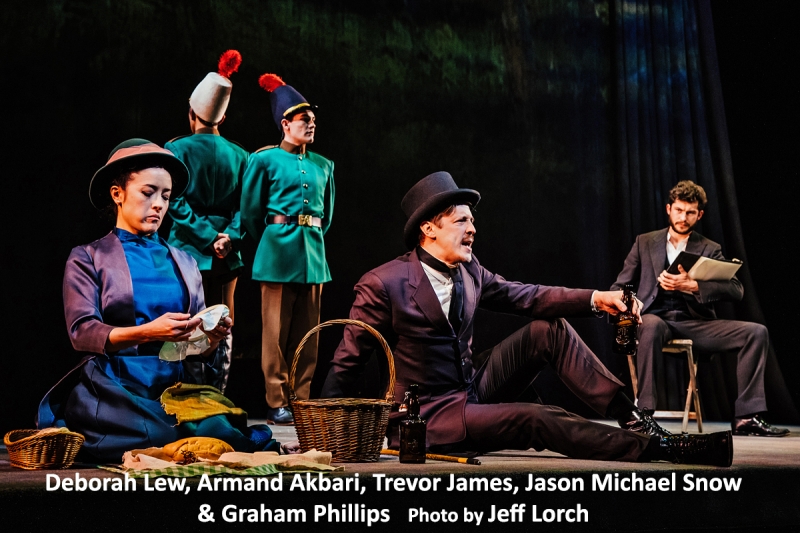 So you have never seen any other productions of Sunday in the Park with George?
So you have never seen any other productions of Sunday in the Park with George?
I've never seen any productions of the show live. I watched parts of Mandy and Gyllenhaal's versions in the New York Public Library Archives after I got the role. That experience showed me how much flexibility there is in this role. I think it's easy to fall into the trap of thinking George is disconnected and uninterested in intimacy, but to me he so clearly wants to understand and be understood. To create order not just so he can avoid the feelings of chaos and irrationality he experienced in childhood, but so that he can feel safe enough to participate in the world. He loves the people he puts in his work. He thinks people are beautiful. In another life, with another childhood, he might express it differently, but then again, then he wouldn't be him.
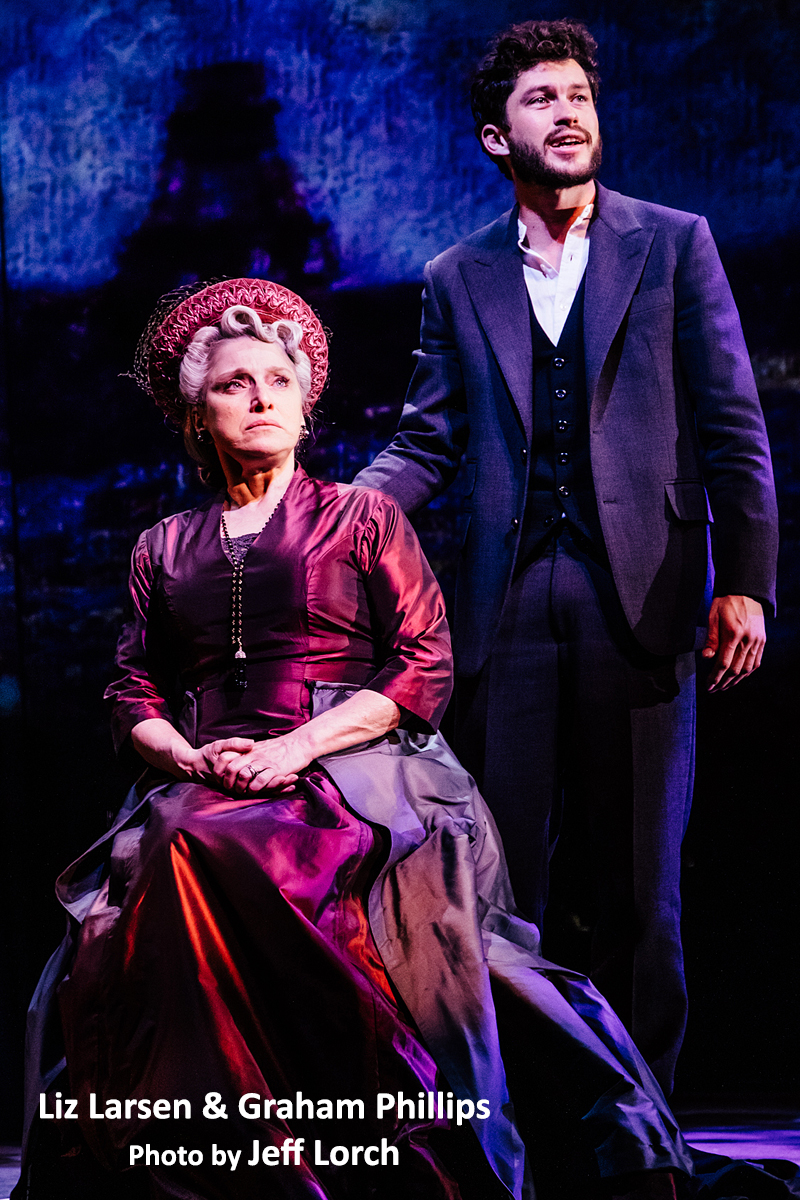 Were you ever introduced to George Seurat's work while you were in Princeton or visiting museums?
Were you ever introduced to George Seurat's work while you were in Princeton or visiting museums?
I'd seen the final study of the painting which hangs in the Met, but I'd never been able to appreciate it the way I do now. I flew to Chicago to see the painting a few Mondays ago, not realizing the museum was closed Tuesdays and Wednesdays. Rehearsals began Thursday back in L.A. so I thought I'd just flown halfway across the country for nothing, but through a combination of begging and emergency networking, managed to get in and spend an hour or so with the painting alone, listening to the original Broadway Cast Recording. It was a pretty magical experience.
For the few who are unfamiliar with this Sondheim classic, what would your three-line pitch for it be?
Version 1: If you have the palate for the avant-garde, the tolerance to look behind the romantic veil of the artistic process, and the heart to hold what's both new and gone in the same breath, Sondheim's Sunday in the Park with George will take you on a corybantic ride through the big, small, light, dark, dense and spacious with glorious orchestral groundswells and wit to boot.
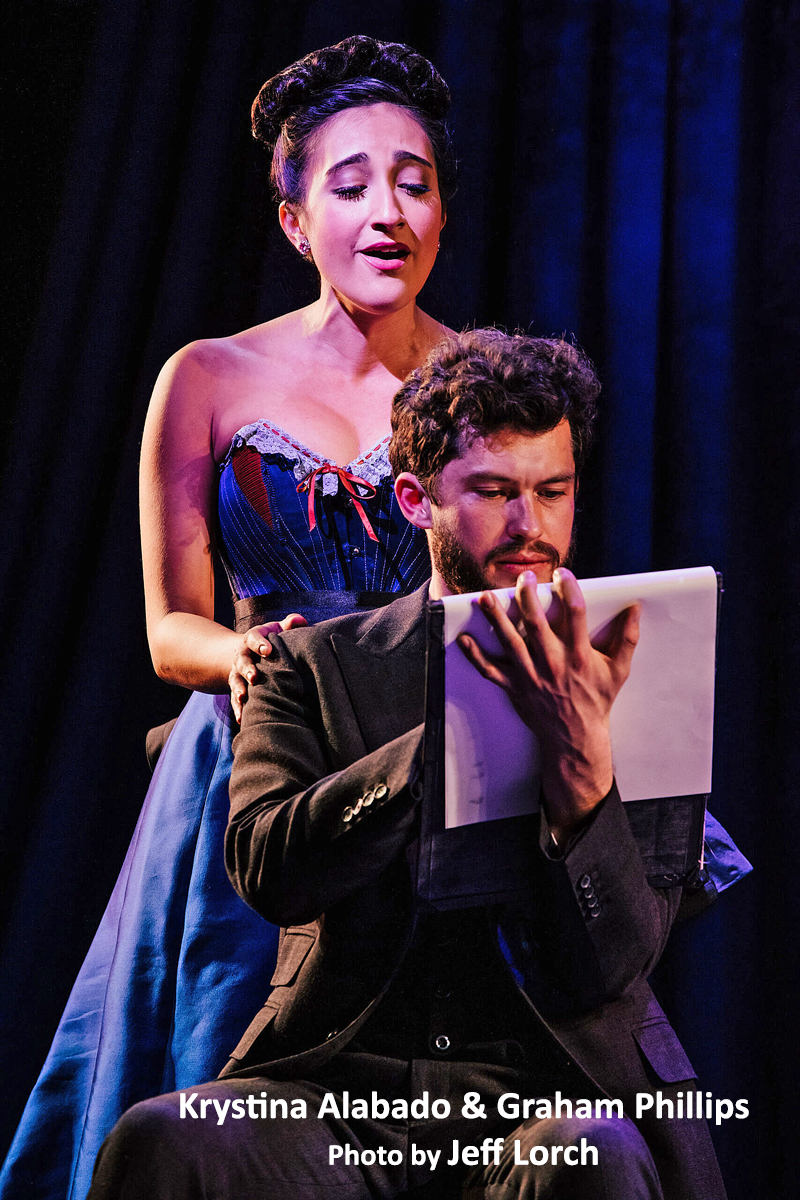 Version 2: It may well be the greatest show ever written about the paradox of all the unusual behaviors and actions we do to feel connected to one another and leave our mark on this world.
Version 2: It may well be the greatest show ever written about the paradox of all the unusual behaviors and actions we do to feel connected to one another and leave our mark on this world.
It's a weird show, so a weird pitch felt right.
Have you worked with any of the Sunday in the park with George's cast or creatives before?
I have not worked with anyone in this cast and crew before and they are all fantastic. Krystina is wonderful and has a gorgeous soul and voice. She's so open and yet specific and contained. And working with Sarna Lapine was a treat. She was open to new interpretations but, given her closeness to the show and to her uncle, and a very clear and deep understanding of the text and dramaturgy.
If you were to submit George Seurat on a dating site, what qualities of his would you list?
Broody, entrepreneurial male artist seeking rousing female model from a lower socioeconomic class who can catch the light and be still, but also call me on my bullshit, but not to the point of disrupting my lifestyle or artistic flow; who will never leave me or let me go but also leaves me alone and lets me come and go as I please. Who has passion and deep needs but impossibly low expectations for partnership. Who sees how unique and special both my soul and life mission are, but doesn't dote on me. Preferably does not enjoy baked goods, ideally Celiac. Jokes about my mother are off-limits. I do not like to be touched until I do, but I will also not tell you what I need and when I need it unless it pertains to my work. I spend all my money on paint so don't expect much in the way of gifts. I have to go now. Goodbye.
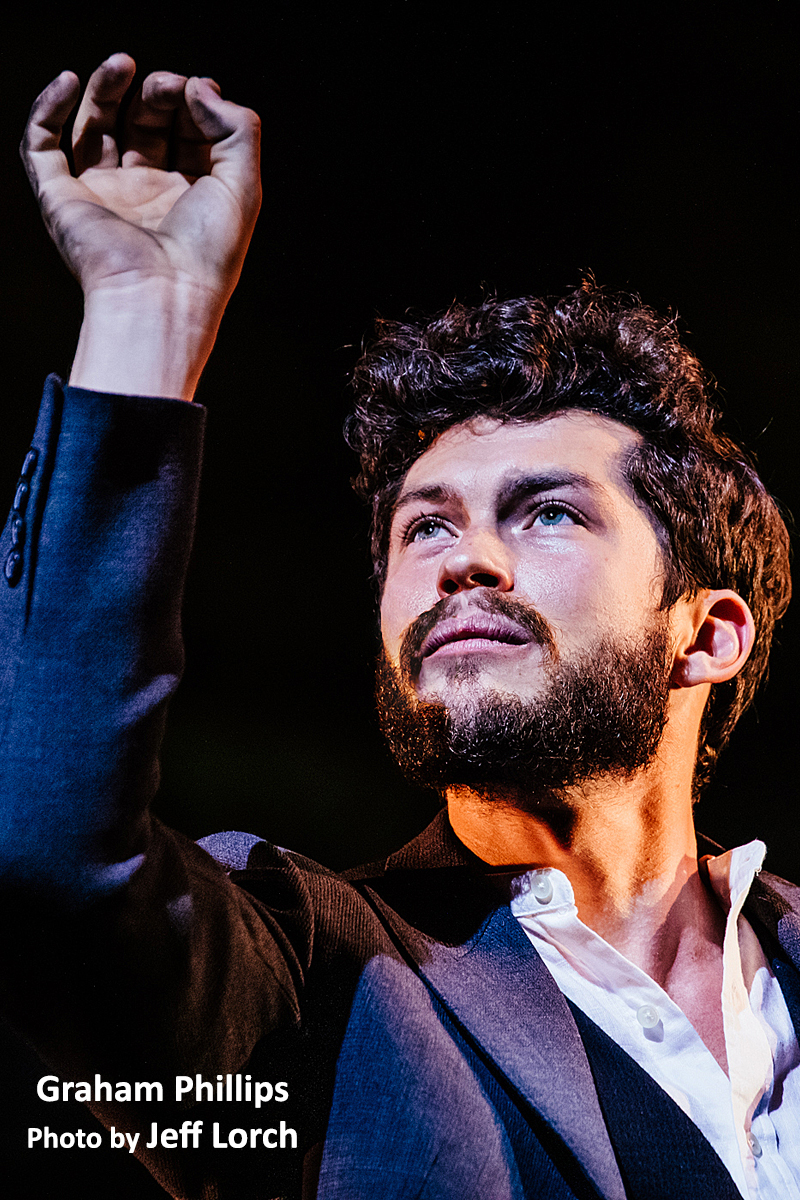 What character flaws would you definitely omit?
What character flaws would you definitely omit?
I think I already ruined this part with the above...
How did circumstances led you, the son of a former U.S. district court judge to take your first acting gig at nine years old?
I was a bit of a wild child when I was younger. Very sensitive and outspoken. I found, and my mother noticed, that when I was singing, I was a bit more contained, we could say. Comfortable with presence might be a better way of putting it. I eventually found this wonderful magical space in the theater where all the intense uncontained anger and angst and sadness and elation and frustration that made it difficult for me to fall in line in school suddenly had an outlet to safely be explored and even cherished. I also think that the legal field is just another venue for performance art, so perhaps it's not that surprising after all, though I do wish the judiciary had kept with the wigs...
How did you get chosen to sing the National Anthem at a Los Angeles Dodgers game when you were only 10 in 2003?
I have no idea. Let me ask my mom... She doesn't remember either. But she thinks I was 8 or 9.
When you were twenty-one, you co-founded a small production company Grind Arts Co. and have run the independent film production studio Phillips Pictures. What inspired you to branch out from acting roles?
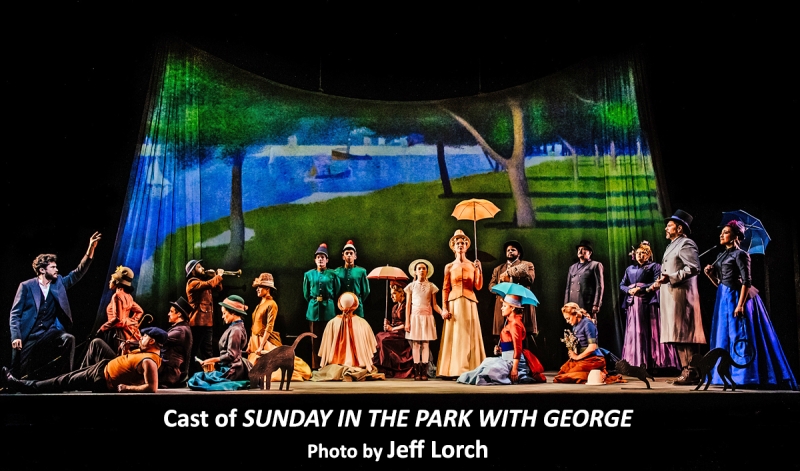 There is so much gatekeeping and rejection that you deal with being on the performance side of this industry, it gets exhausting and can make you feel like you are not in control of your own destiny. That was a major component of my branching out: taking back control. But also, I've always wanted to create art and be on the other side of the camera or curtain. I have such a profound love for the craft of the set painters, production designers, prop masters, lighting designers, special effects teams, costumes, electricians, grips, cinematographers, carpenters, etc. that I wanted to be in closer contact with that. I've always pestered everyone that would tolerate my questions since I was very young. I also have wanted to direct film with my brother for a long time, so it's been a joy to get to dive into that world with him five years ago. Our relationship has definitely grown stronger for it.
There is so much gatekeeping and rejection that you deal with being on the performance side of this industry, it gets exhausting and can make you feel like you are not in control of your own destiny. That was a major component of my branching out: taking back control. But also, I've always wanted to create art and be on the other side of the camera or curtain. I have such a profound love for the craft of the set painters, production designers, prop masters, lighting designers, special effects teams, costumes, electricians, grips, cinematographers, carpenters, etc. that I wanted to be in closer contact with that. I've always pestered everyone that would tolerate my questions since I was very young. I also have wanted to direct film with my brother for a long time, so it's been a joy to get to dive into that world with him five years ago. Our relationship has definitely grown stronger for it.
Tell us about your soloing on Meat Loaf's 2006 album Bat out of Hell III: The Monster is Loose.
I remember very little about the process except spending a lot of time with Desmond Child and seeing a parking spot at the studio labeled "Mr. Loaf."
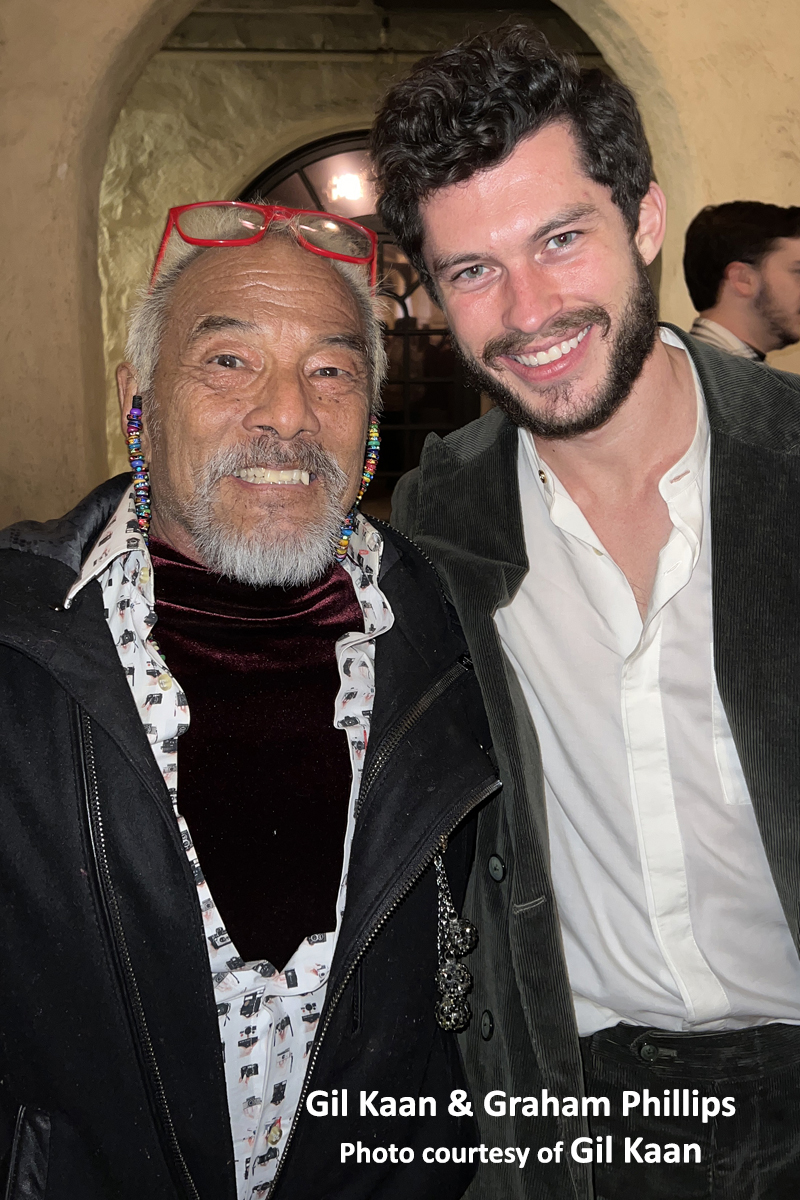 What's in the near future for Graham Phillips? Singing? Acting? Directing? Producing?
What's in the near future for Graham Phillips? Singing? Acting? Directing? Producing?
I'm directing a southern Gothic psychological thriller this spring with my brother called Blackwood, based on Michael Farris Smith's incredible novel of the same name. Our second feature, Rumble Through the Dark, about a bareknuckle fighter from the Mississippi Delta starring Aaron Eckhart and Bella Thorne, comes out in theaters this summer. On the acting front, my horizon is only as far as closing night next month. But if nothing else comes up, I just had a conversation with my brother an hour ago and we're toying with the idea of casting me as one of the supporting roles in Blackwood. It's good to be a gatekeeper.
Thank you again, Graham! It was a total pleasure seeing you and your fellow actors and musicians deservedly receive your loooong standing ovation on opening night.
For tickets to the live performances of Sunday in the Park with George through March 19, 2023; click on the button below:
Comments

Videos

